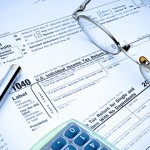UNICAP rules and exemptions

A set of tax rules known as the uniform capitalization (UNICAP) rules require certain business costs that are normally expensed as they’re incurred to instead be capitalized as part of the cost of inventory held for resale or noninventory items produced by a taxpayer for use in its trade or business.
The rules are far from new, having been around since the mid-1980s. However, a recent Tax Court decision is a reminder that the rules can be a trap for the unwary. The taxpayer in the case was a homebuilder who capitalized the direct material and labor costs of constructing the homes, as well as postcompletion carrying costs until the houses were sold. However, it failed to capitalize a whole host of generally indirect costs that the IRS and the Court found to be related to completing the homes (from front office salaries and overhead, to the cost of supervisors, designers, and decorators). The end result was that the taxpayer faced a substantial additional tax bill.
Fortunately, there are several exceptions to the UNICAP rules that exempt numerous businesses from having to comply with them (including most service businesses, small to medium-size retailers, and even most homebuilders with sales of no more than $10 million, along with many in the farming and oil and gas businesses). However, many other businesses are subject to the rules, sometimes without even knowing it — for example, where the business previously qualified for an exemption but has outgrown it or otherwise no longer meets the requirements.
Give us a call if you have questions about whether your business is subject to the rules or qualifies for an exemption.
© 2014




